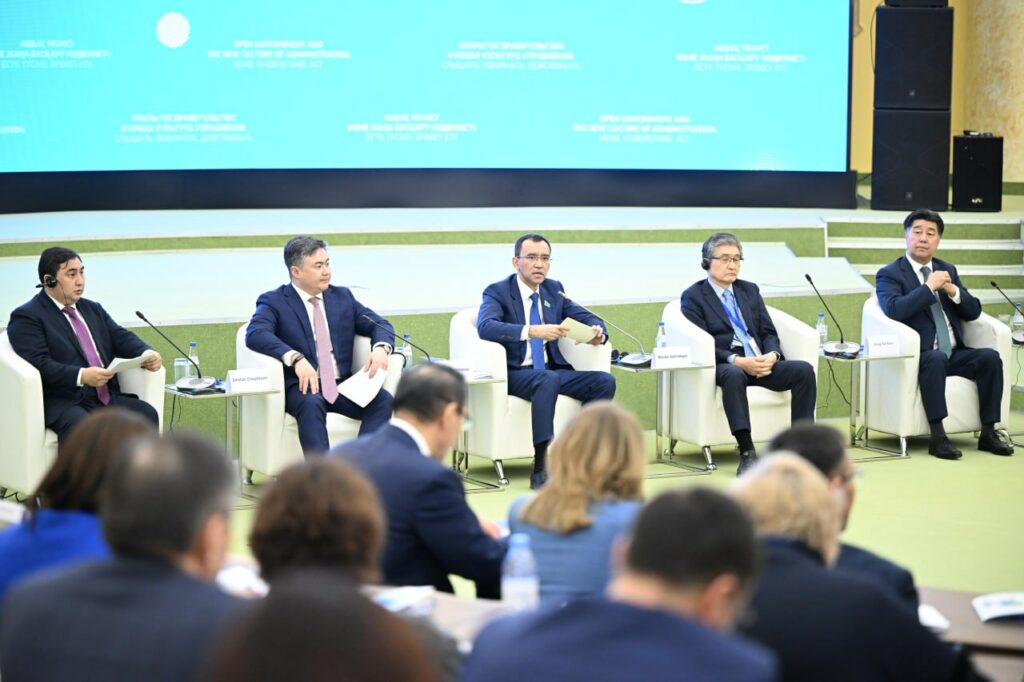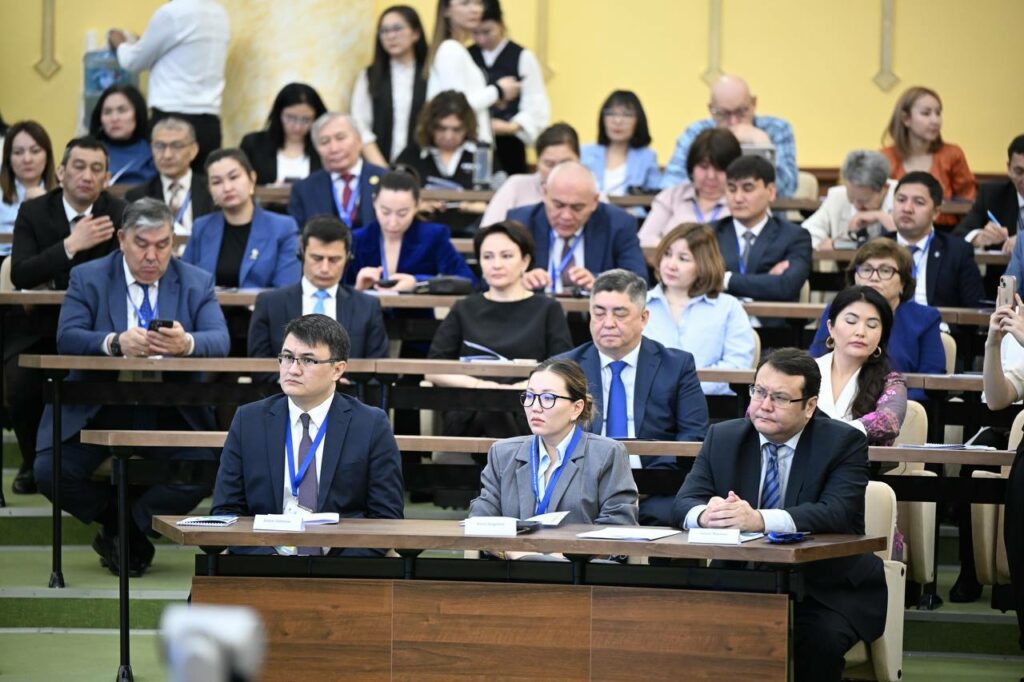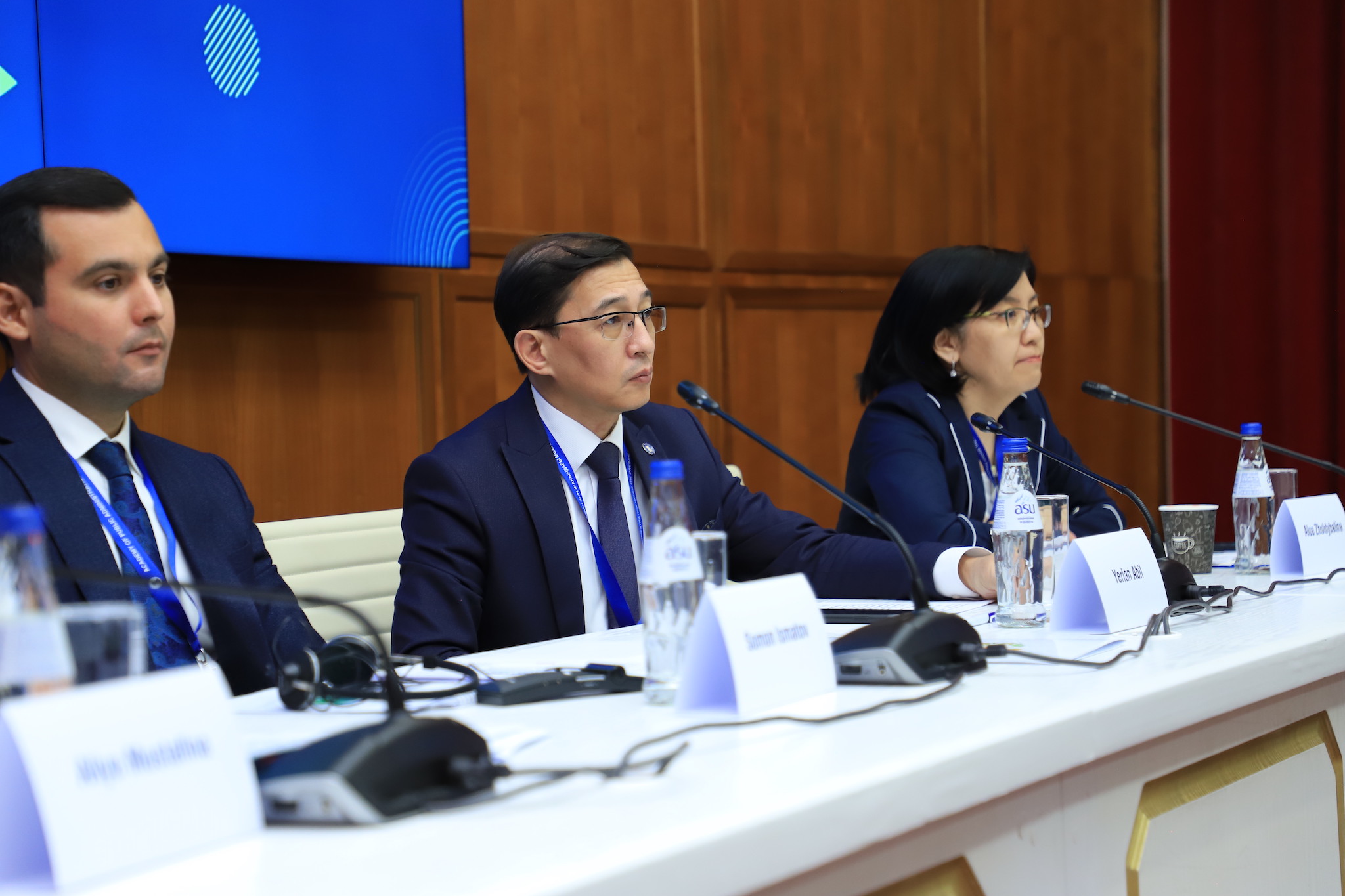On April 27-28, 2023, at the Academy of Public Administration under the President of the Republic of Kazakhstan, with the support of the Agency of the Republic of Kazakhstan for Civil Service Affairs and the Astana Civil Service Hub, a scientific and practical conference was held on the topic “Open government and a new management culture: hear, understand, act.”
During the meeting, the participants considered aspects of modern political culture, new approaches in the field of public administration and discussed issues of strengthening the dialogue between civil society and the state.
In his speech, Maulen Ashimbaev noted that one of the critical tasks on the way to building a modern and fair economic and political system, as well as ensuring the sustainable development of Kazakhstan, is to restart and increase the efficiency of the public administration system in the country. In this regard, the Speaker of the Senate urged to study successful world cases and actively implement them, taking into account the specifics of the activities of government agencies.
“Now, we are attempting to introduce service model elements. With it, the state’s focus is a person, his needs, and his goals. It is the next natural and evolutionary level of development of the public administration system. At the same time, two main conditions are needed for the service model to work normally. The first is an open, democratic political system, which implies a system of checks and balances between the branches of government, competition, openness, and so on. The second condition is the presence of stable and influential actors – partners of state bodies in the face of civil society, strong political parties, established institutions of self-government, independent media, active NGOs, etc. Therefore, it is important to synchronize the system of reforming public administration with political reforms,” Maulen Ashimbaev noted.
According to the rector of the Academy of Public Administration under the President of the Republic of Kazakhstan, the conference aims to discuss topical issues of public administration and develop practical recommendations.
The main areas of work of the conference are defined by the following tasks: discussion of international practices and national experience in the implementation of “Open Government,” analysis of key aspects of digitalization of public administration – Invisible Government, search for practical institutional tools for interaction between open government and open society, formation of a service state apparatus, a new management culture, development HR management in public administration, promotion of an open dialogue between crucial actors – civil society, business, and the state,” said Yerlan Abil.
During the conference, Nobel Peace Prize winner Mr. Rae Kwon Chung shared his experience and research in green energy and Net Zero technologies. In his opinion, the “energy transition” requires “green investment” in public transport, environmental tax reform, a low-carbon green growth strategy, and a system of voluntary consumer participation. Also important is a social campaign to raise awareness and change the mindset of consumers. It is necessary to develop a voluntary consumption of renewable energy and carbon payment system in which consumers can voluntarily buy renewable energy and determine their contribution.
“Today you are working on the creation of an “Open Government” to obtain short-term results. Long-term issues must be taken into account, as they may affect short-term results. I propose to solve this problem with the concept of “green growth.” As part of this concept, it is necessary not only to pay attention to the financial and technological aspects of climate action but also to support the development of open leadership in society with active citizens’ participation. State policy can only be implemented with the support of society, and not only the government but also business structures should be responsible for taking climate action. In addition, it is necessary to support ordinary consumer citizens, as financial resources may limit the government. To solve the problem, the government should integrate technological innovation, economic and social policies to ensure sustainable and environmental growth for everyone,” said Professor Chung.
It should be noted that the plenary session of the conference was attended by the chair of the Senate of the Parliament of the Republic of Kazakhstan Ashimbayev Maulen Sagatkhanovich, the first deputy head of the Presidential Administration of the Republic of Kazakhstan Suleimenov Timur Muratovich, the chairman of the Agency of the Republic of Kazakhstan for Civil Service Affairs Zhazykbayev Darkhan Medegalievich, Professor of Economics, Nobel Peace Prize Laureate Rae Kwon Chung, UN Resident Coordinator in Kazakhstan Friberg-Story Mikaela, Chairman of the Steering Committee of the Regional Civil Service Hub of Baimenov Alikhan Mukhamedievich.


